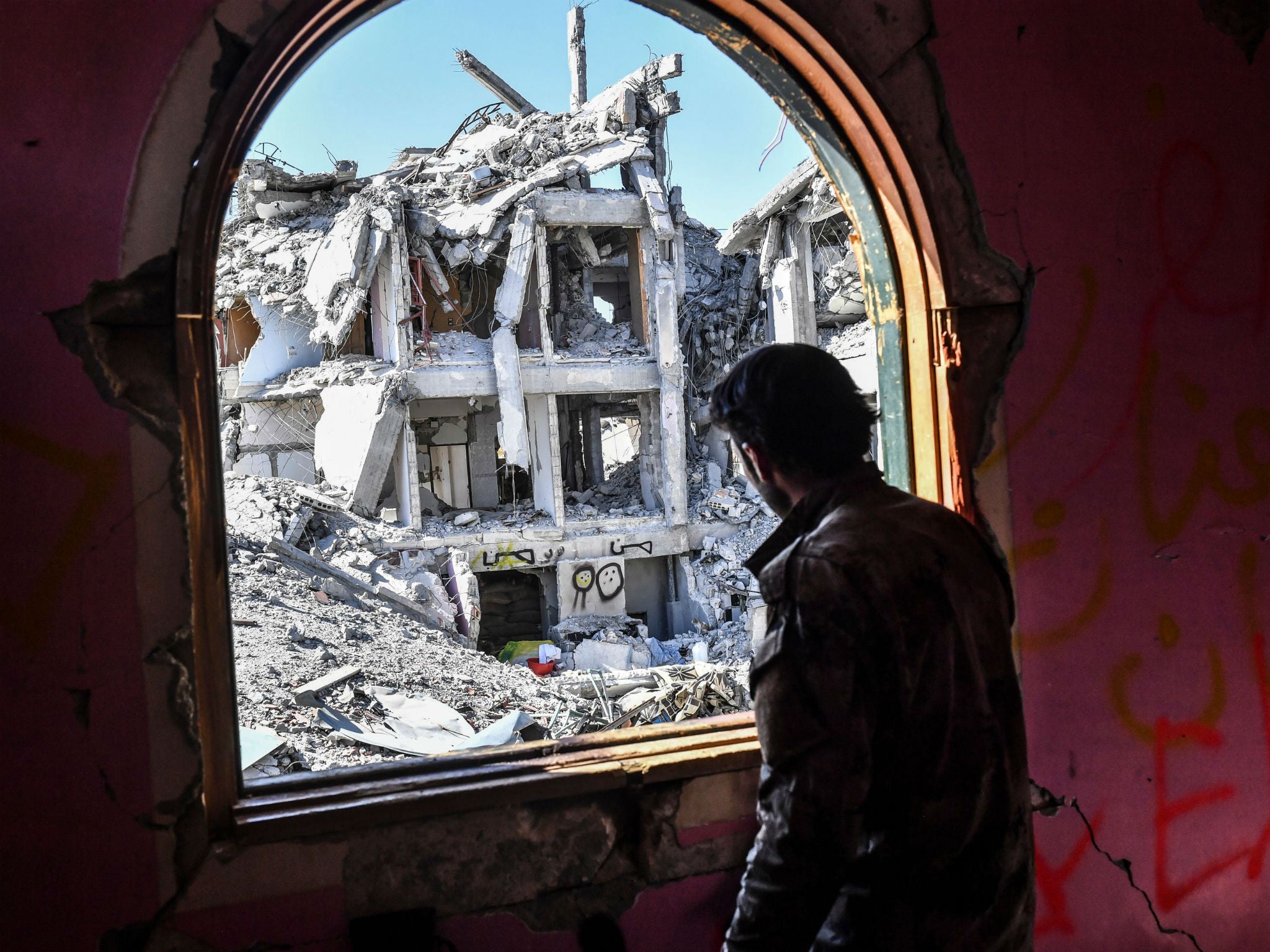The defeat of Isis in Raqqa will bring problems for the victorious Syrian Kurds
Analysis: The Kurds in Syria have always wondered what is going to happen to them once the US no longer needs them as an essential ally against Isis, we may now found out

The expected fall of Raqqa will mark the latest defeat for Isis as it loses its last urban strongholds in Syria and Iraq and reverts to being a guerrilla movement launching raids from hideouts in the desert. The siege of Raqqa started on 6 June and Isis fought skilfully against overwhelming odds until it now holds only a small enclave amid the ruins.
Success will bring problems for the victors as well as the defeated. The attackers in Raqqa are the Syrian Democratic Forces (SDF) , a mixed Kurdish-Arab force, but its military punching power comes from the YPG, the committed, well-organised and experienced Syrian Kurdish fighters linked to Kurdistan Workers Party (PKK) in Turkey. The SDF have shown that they are excellent ground troops, but they owe their sweeping successes not only to their undoubted military prowess but also the devastating firepower of the US-led coalition using bombs, missiles and drones.
The Kurds in Syria have always wondered what is going to happen to them once the US no longer needs them as an essential ally against Isis. They are a community of some 2.2 million people who were marginalised and persecuted until the uprising against the Syrian regime in 2011. The Syrian army withdrew in 2012 from Kurdish territory and the Kurds established what they called Rojava, linking up Kurdish enclaves in a wedge of territory in north east Syria south of the Turkish border.
In 2014, the Kurds were attacked by Isis who almost captured the Kurdish city of Kobani, but were defeated after massive intervention by the US air force. The Pentagon had long been looking in vain for an ally on the ground in Syria and in the YPG it found one: the US-Kurdish alliance has been highly successful, but could now be a victim of its own success.
The Kurds are today operating in Sunni Arab areas that they cannot hope to retain permanently. They have pushed some SDF units further south downriver on the Euphrates into Deir Ezzor province where they risk colliding with the Syrian army coming from the west. Isis has retreated to this area which produces half of Syria’s oil production.
Some in the White House are reported to be pushing for the YPG and Sunni tribes to be used in pursuit of President Trump’s plan to weaken Iran and its Syrian ally. But such a policy has several serious drawbacks: it is much too late because President Bashar al-Assad, Lebanese Hezbollah, Islamic Revolutionary Guards (IRGC) and Iraqi Shia paramilitary groups have effectively won the war in Syria. The SDF would have to be strongly reinforced by local Arab allies in order to fight them and use of them as American proxies might lead to conflict with Russia.
Kurdish commanders are now speaking of negotiations with Damascus since Mr Assad has largely defeated the Arab opposition and will now have to deal with the Kurdish minority. Mr Trump said many belligerent things about Iran last Friday, but it is not at all clear that he is wiling to get entangled in an unwinnable war in Syria which might do more damage to the US than Iran.

The greatest threat to the Syrian Kurds will come from Turkey which sees the Kurdish quasi-state running along its southern border as a permanent threat. Worse, there is not a lot that Turkey can do about this while the US and Russia are deeply engaged in the region. If it does expand its limited military involvement in Syria it will want air cover, but the Russians would not allow it to deploy aircraft over Syria.
The Syrian political and military chess game is very complex and has many players. Raqqa is one more in a long list of defeats for Isis which it will have difficulty surviving, though it would have known the city would fall and will have made preparations to take refuge in desolate areas with bunkers, weapons caches am food stores where it will seek to survive. Much as it did in 2008-11 after being driven out of much of Iraq by the US and its Sunni Arab allies. In Syria and Iraq the main issue has shifted from being the defeat of Isis to the future of the Kurds who will struggle to hold onto the gains they made during the war.
Join our commenting forum
Join thought-provoking conversations, follow other Independent readers and see their replies
Comments
Bookmark popover
Removed from bookmarks